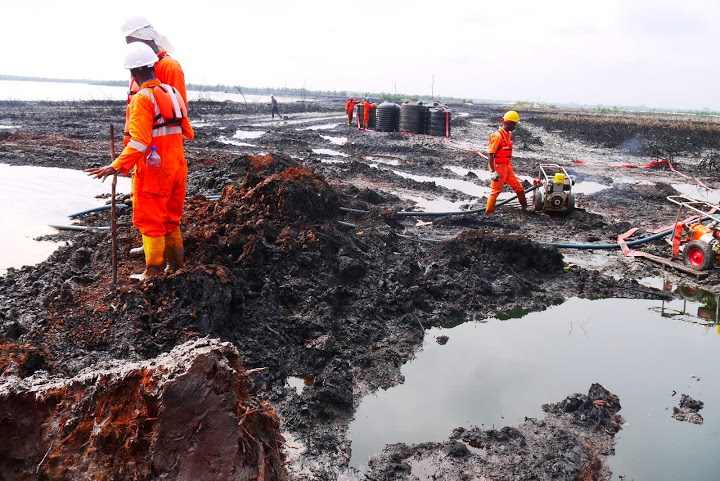- Shell to Begin Bodo Clean up Next Month
The Chairman, Bodo Mediation Initiative (BMI) Inemo Samiama, has said that clean-up work at Bodo community will begin next month after two spills in 2008.
The BMI is mediating between Shell’s Nigeria subsidiary Shell Petroleum Development Company of Nigeria (SPDC) and the Bodo community. It also includes representatives from the United Nations Environmental Programme, the local government, the Dutch embassy and several non-governmental organisations.
Samiama said in a chat that, “Hopefully we should be able to go to the site and start the clean-up next month. We are hoping this time around we are going to start this clean-up once and for all and get this job done.”
He also said that the entire clean-up process will take several years. Adding that, “SPDC remains fully committed to ensuring clean-up takes place and will continue to work with the BMI to implement a remediation plan for Bodo area.
“Shell had appointed international contractors to carry out the clean-up work. Once it commences, the first step would be to remove oil from the water surfaces before restoring landscapes that were damaged by the spill.”
Recall that Royal Dutch Shell agreed in 2015 on a 55 million pound settlement with the Bodo community after accepting liability for two pipeline leaks due to corrosion that contaminated their land.
But progress to clean up the spill has been slow after Shell said members of the community had denied it access in August 2015 when work was set to begin.
BMI was established under the auspices of the former Dutch Ambassador who, until 2015 co-chaired the mediation process to deliver the clean-up of Bodo. The BMI strives for clean-up of the Bodo community to international standards and the purpose of the Shoreline Clean-up Assessment Technique (SCAT) under the BMI was to form judgments on the best remedial methods applicable to each grid at individual sites.
The SCAT approach was recommended by the UNEP representative in the BMI (Dr. David Little) as the best method to ensure effective clean-up to international standards.
SCAT allows clean-up action to be selected and implemented based on site-specific findings during the detailed site assessment.
This was accepted by BMI in order to ensure that clean-up is carried out to international standards and best practices.
The SCAT results confirmed areas of pollution and the need for clean-up. These results did not raise new concerns because they were not different from existing observations from earlier reports.
On 18th July 2016 in a meeting with members of the Bodo Community, the BMI chair discussed the observations in the SCAT report and emphasized that the only possible way to mitigate against continued exposure to the negative consequences of the polluted environment was to immediately commence the clean- up and remediation exercise.
The clean-up process was shut down by Bodo community members two weeks after the report was released because these community members wanted to receive money rather than have their Bodo community cleaned-up.

 Forex3 weeks ago
Forex3 weeks ago
 Naira3 weeks ago
Naira3 weeks ago
 Billionaire Watch2 weeks ago
Billionaire Watch2 weeks ago


 Naira3 weeks ago
Naira3 weeks ago




 Naira2 weeks ago
Naira2 weeks ago




 Naira1 week ago
Naira1 week ago




 Naira4 weeks ago
Naira4 weeks ago
 Banking Sector4 weeks ago
Banking Sector4 weeks ago
























